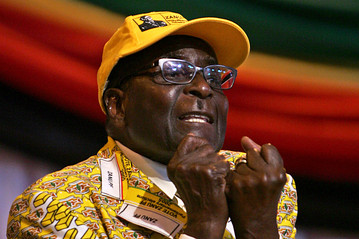November, 10, 2014

You’d have to be heroic — or perhaps willing to break the law — to start a business in Venezuela, Afghanistan or Libya.
They’re among the lowest-ranked economies in the World Bank’s latest “Doing Business” report, which scores 189 nations based on how hard it is to run a company there.
Being an entrepreneur in the bottom quarter of countries on the list “is really a heroic act because of the obstacles you face,” said Augusto Lopez-Claros, a director in the bank’s Global Indicators Group and a coordinator of the survey.
In countries like “Zimbabwe and other remote corners of the world…it is really very, very hard to engage in a meaningful, above-the-board legal way to do business,” the World Bank economist said.
The report doesn’t measure bribery or corruption. But the World Bank says “where regulation is particularly onerous, firms may opt for bribery and other informal arrangements intended to bypass the rules.” In economies with particularly burdensome regulation that score the lowest, such as Libya and Afghanistan, “levels of informality tend to be higher,” the bank said.
The rankings of the 189 economies can be a boon or humiliation to developing and emerging markets around the world seeking to attract more investment. They’re based on a raft of indicators that gauge the difficulty of starting and running a business, including paying taxes, registering property, permitting and contract enforcement.
The seven countries deemed most business-friendly — led by Singapore and New Zealand – kept their respective rankings from last year. Eritrea, Libya and the Central African Republic were listed as the worst countries to be an entrepreneur. Colombia, Jamaica and Albania made the biggest leaps in the rankings, while Serbia, Iraq, Syria and Cameroon fell the furthest.
Despite the heroics needed to be a business owner in the worst countries, the gap between the lowest quartile and the rest of the economies narrowed significantly in the past decade, Mr. Lopez-Claros said. In 2005, it took an average of 116 days to get a business started in the worst quartile of countries. Now it only takes an average of 44 days. That trend can be seen across the categories, he said.
The countries with the most difficult and costly procedures and the weakest institutions have “gradually over time begun to adopt in a very tangible way better business practices,” Mr. Lopez-Claros said.
Beyond sending a signal to entrepreneurs, improvements and failures also matter to investors because of the potential impact on growth.
That’s especially important as prospects around the globe fall.
Investors around the world are growing increasingly concerned that economies in the eurozone and many emerging markets aren’t going to grow fast enough to pay off their debts and could fall into long-term funks. Creating a better business environment is a major way to help spur investor confidence, and in turn, growth.
A friendlier business climate also expands the tax base, which translates into more state resources for education, infrastructure and public health systems. Those areas then boost productivity and competitiveness, which then boosts economic growth. Better prospects then change the debt outlook, creating a virtuous cycle.
Other findings from the World Bank’s database:
The Wall Street Journal
Video Story